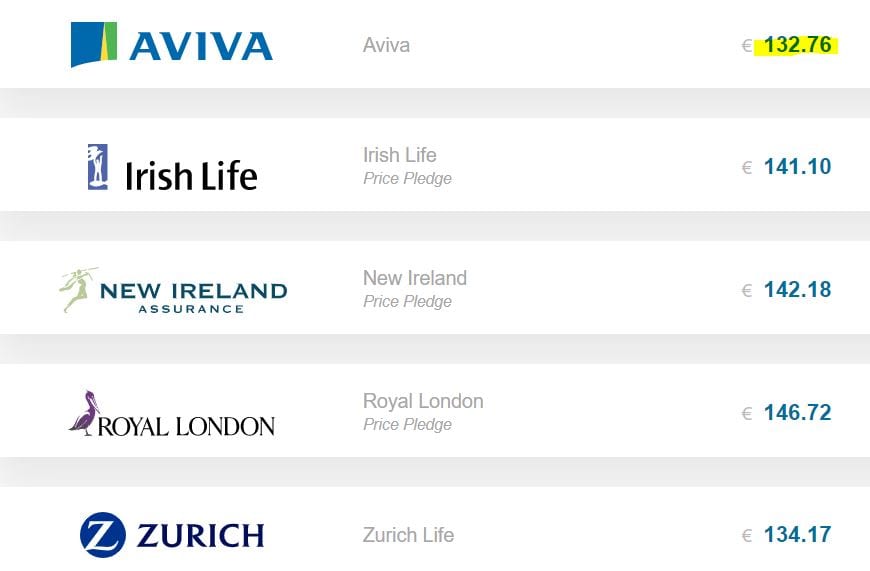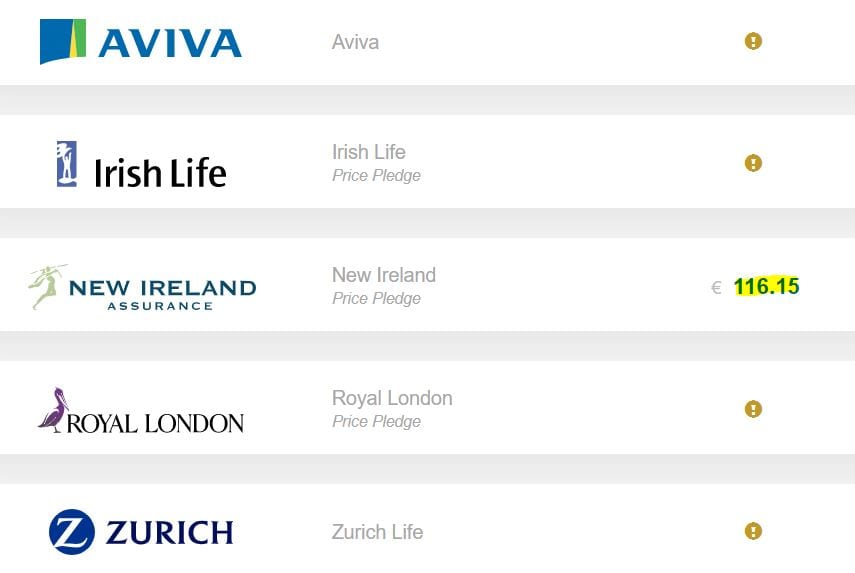What is Monthly Income Life Insurance?

Everybody Has a Plan Until They Get Punched in the Mouth
-Mike Tyson, former undisputed world heavyweight boxing champion.
Today is the day we’re training to meet Mike Tyson in the ring.
If you ever did meet Tyson in the ring, there’s a good chance you’re not coming out alive.
So, for this particular conversation, Tyson is death. I’m your trainer, and we’re here to prepare you for the day Tyson comes calling.
Hopefully, it never happens.
So we have the chats, discuss income replacement, and work out how much money you need to leave behind to care for your family.
We calculate a figure, discuss the different insurers, and settle on a premium.
You’re happy, and I’m happy.
We put €1m cover in place, shake hands, and hope for the best.
Two years later:
You’re dead.
Aren’t You Lucky You Took Out Life Insurance?
Your wife, Sarah, never really expected to receive a million euros from your policy.
Truth be told, she feels slightly guilty about it – grief is weird.
But she’s also anxious; a million quid is nice, but your youngest child is only two.
She worries about making it last for 23 years.
You both put one million cover in place and agreed that the survivor would stop working to look after your children if one of you passed away.
Sarah knows the plan is to invest it and generate an income, but money was your thing, not hers.
Truth be told, she hasn’t a clue what to do with a cheque for €1m
Who do I trust? What if I invest it in shares and there’s another crash? What if they lose it all? Jesus, I don’t need this stress right now on top of anything else!
Could you have made it easier for Sarah?
Is there an alternative to lump sum life insurance?
Yes, there is.
It’s called Monthly Income Life Insurance, or ‘Family Income Benefit’ as our friends north of the border and across the Irish Sea call it.
What is Monthly Income Life Insurance?
Instead of having your other half freak out about how they will make one million quid last for 23 years, you can plan a monthly tax-free amount to hit their account.
So, let’s say we calculate that if you get Tyson’ ed, your family will be down €3000 per month.
Your youngest is 3, so we arrange a Monthly Income Life Insurance policy paying €3000 per month for the next 22 years.
If you get knocked out, your partner will receive €3k per month until your youngest is 25 and, hopefully, financially independent.
You’ve done your duty and prepared an income for your family should the worst happen, hence the Family Income Benefit synonym.
It’s the stress-free way to arrange life insurance.
Can You add a Lump Sum to Monthly Income Life Insurance?
Yes.
Death is expensive and comes with some immediate expenses that need to be paid.
To get you over the hump and pay final expenses (funeral costs, legal costs etc), you can add some lump sum cover to your monthly income benefit.
Can you add Whole of Life Cover to Monthly Income Life Insurance?
Yes!
Once the term on the monthly income insurance ends, this gives you free whole-life cover for the rest of your life.
Clear as mud?
Let’s examine two scenarios using two 35-year-old non-smokers, Steve and Sarah, who want €1m for 25 years.
A) Lump sum cover
B) monthly income cover:
Lump-Sum Life Insurance of €1m over 25 years


They pay €132.76 every month for 25 years.
If either Steve or Sarah dies within the 25 years, Aviva will pay out €1m
If they outlive the policy, Aviva pockets the premiums of €39,828
Monthly Income Life Insurance of €1m over 25 years
Let’s insure Sarah and Steve for €3333 per month, adding €20,000 Whole of Life Cover.
This will pay €3333 every month for the remainder of the policy should either of them get Tyson’ ed.
If one of them gets hit by a bus on day one of the policy, it will pay out €3333 every month for the remaining 25 years (€3333 x 12 x 25= total payout of €1m)
If one of them passes in the 10th year of the policy, it will pay out €3333 x 12 x 15 = €599,940 in total over 15 years
As you can see, it’s a reducing payout, which is fine because you need more cover when the kids are younger.


They pay €116.15 every month for 25 years.
If either Steve or Sarah dies within 25 years, New Ireland pays out €3333 per month for the remainder of the policy.
If they outlive the policy… well, they can’t outlive it because they have added whole of life cover!
The Whole of Life continuation option guarantees this policy will eventually pay out €20,000 on each death.
The real beauty is that they don’t have to pay for €20,000 Whole of Life option once the initial 25-year term ends.
The maximum they will pay into this policy is €34,845.
The minimum it will payout is €40,000.
I’ll let that settle in for a second.

All you need to know is that it will pay out more than you pay in.
For me, it’s a no brainer.
Your Protection Needs Reduce As Time Passes
Monthly income benefit does exactly what it says on the tin – it protects your family to the max when your kids are young.
As the kids get older, they have fewer years of financial dependence (by 25, the feckers should be able to buy their own stuff!)
And, as time passes, your mortgage reduces, savings increase etc so you don’t need as much protection.
You don’t need a million in life cover when the “kids” are 25, but you do need a lot of cover when they are babies.
And there’s the added bonus of the whole of life continuation so you know you’re getting something back for the money you pay in!
In 25 years, 60-year-old Steve will be balder and 60-year-old Sarah will have more wrinkles.
But, they’ll both be very proud of their 35-year-old selves for taking out this policy.
Senior Sarah and Senior Steve will have free whole of life cover of €20,000 each.
Their friends will still be paying hundreds per month for their cover.
Is There a Catch – How Can You Get More Than You Pay?
Remember, the insurer will invest your premiums every month.
Don’t worry about them making a profit.
They’ll be able to generate enough from your premiums to make the payout.
It might seem like you’re making money, but rest assured, they are making more.
The swines!
Which Insurers offer Monthly Income Life Insurance?
Only two insurers offer monthly income benefits – New Ireland and Zurich Life.
Can You Add Serious Illness Cover?
You can add critical illness coverage, and the good news is that Zurich and New Ireland offer the best serious illness coverage in Ireland.
Is Monthly Income Life Insurance Taxable?
The income payments are paid monthly and are tax-free.
The money can be spent as the beneficiary chooses; however, if they invest the monthly income, any growth in the investment is taxable.
This is the same for lump sum life insurance.
What’s the Best Life Insurance for a Single Parent?
If you’re a single parent, a monthly income benefit is a great way to provide for your children.
This policy would provide your child’s guardians with the money they need to care for your child should the worst happen.
You can write the insurance policy in trust with the names of your children and the guardian as the beneficiaries.
Remember, you can add critical illness to the policy (or take out separate income protection) and relax, knowing you will have a replacement income to support you and your children should you become unable to work.
Life Insurance for Single Mothers
Guide to Life Insurance for Single Dads
Best Type of Life Insurance for Renters?
If you’re renting with your partner, monthly income life insurance is ideal.
You can insure each other for the full amount of your monthly rent.
If the worst happens, your partner can continue to make the rental payments and stay in your home.
If you’re considering life insurance and are not married, you should take out two separate policies and pay each other’s premiums.
Over to you…
I know there’s a lot there.
Monthly income benefit is probably a concept you haven’t encountered before, as most advisors push lump sum cover.
So don’t worry if you find it confusing.
If you’d like to have a quick chat to answer your questions, I’d love to help.
You can book a time that works for you here.
Or, if you’d like a recommendation and a quote for lump sum and monthly income life insurance, please complete this questionnaire, and I’ll get back to you via email.
![]()
![]()
Thanks for reading
Nick
Editor’s note | We first published this blog in 2020 and have updated it since.






